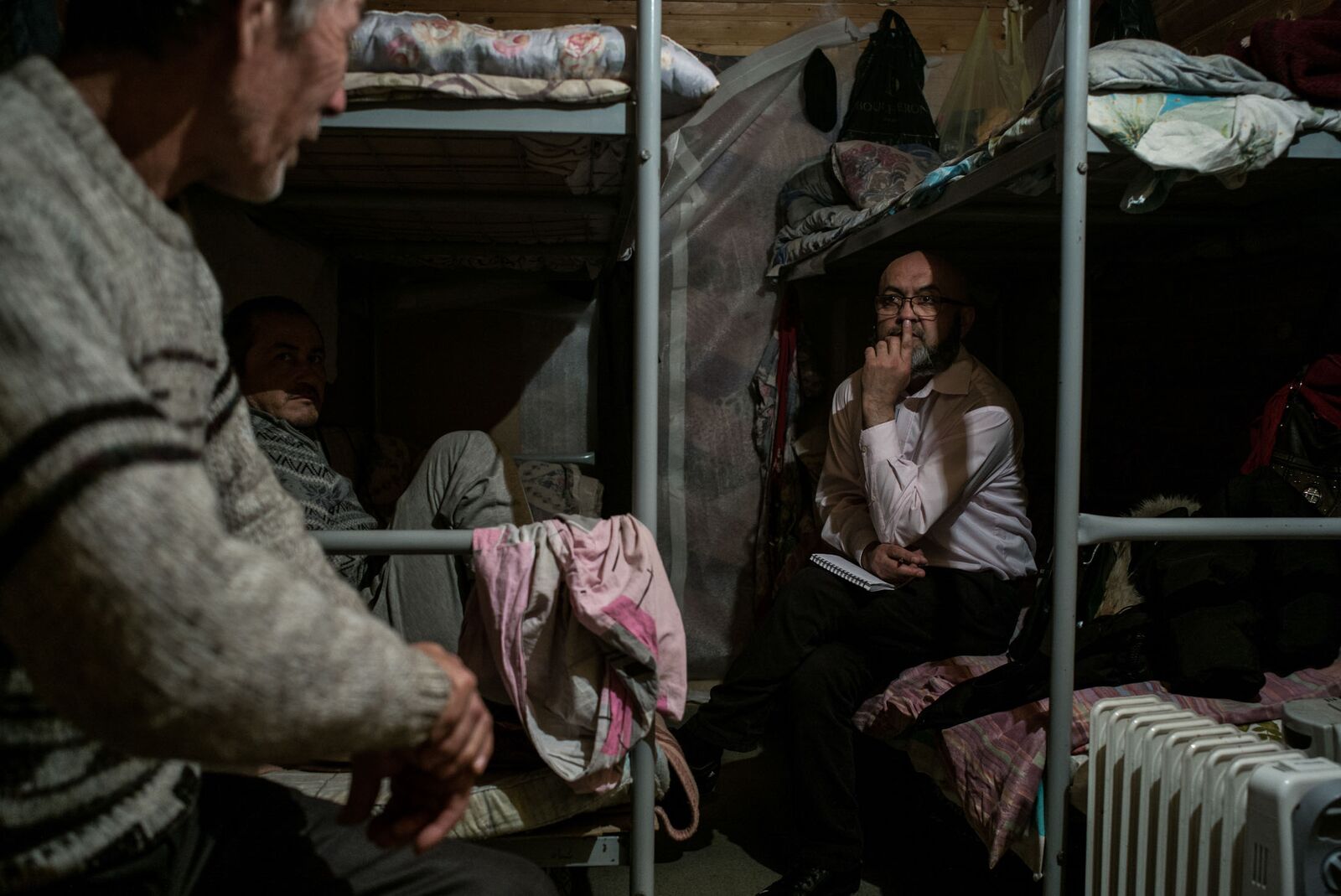Putin taking the Ukraine ended the de-escalation
That is why we are where we are today
You fools fail to understand one simple thing: if Putin invaded Ukraine in 2014 as you claim, Kiev would have been ruled by Russians 3 years ago. Look at Syria. Putin started its deliberation only 2 years ago and ISIS was weaponed, trained and financed [from Washington] a lot better than poor Ukrainian army. Now over 95% of Syria is deliberated from ISIS.
All those fairly tales about "Putin invaded Ukraine" are only for fools. Washington Deep State, that's who REALLY invaded Ukraine and has been totally controlling it since 2014.
UKRAINE: ZIONIST AMERICA'S NEW JEWISH COLONY — by Lasha Darkmoon – Darkmoon
Didn't Russia almost lose Chechnya?
Actually apparently Chechens won the Battle of Grozny even. (Well not without damage)
But, just goes to show.
Battle of Grozny (August 1996) - Wikipedia
That was Yeltsin's times. Putin came in 2000 and ended the war. Now Chechnians have been voting for him with 95%.
Another myth about flooding Russia with Muslims. Muslim republics like Chechniam Dagestan, Ingushetia and others have been part of Russia for ages, long before USA appeared on the map.
I'm surprised how many "experts on Russia" have no idea what they are writing about.
Yeah, and there's millions of Indigenous Muslims in Moscow, as well?
No, while some came from within Russia like Chechnya, or Tatarstan etc. (Which is bad enough)
Some others have been flooded into Russia from Central Asia, like Uzbekstan, and well all the other Stan's.
(This happened under Putin's watch)
If you are talking about Uzbekistan, Tajikistan and other post-Soviet countries then yes, lots of them are coming to Russia to work and it all started in 90-s when Yeltsin was a president. However unlike USA Russia keeps deporting their sorry a*ses as soon as they are spotted.
Deport them?
Really?
Not so much, According to this article, which states Putin's Russia encourages immigrants to come from places like Uzbekistan.
Russia Wants Immigrants the World Doesn’t
Russia Wants Immigrants the World Doesn’t
While Europe and the U.S. tighten border controls, former Soviet states are encouraged by Moscow to send their workers.
By
Leonid Ragozin
March 14, 2017, 2:00 AM EDT
On a brutally cold February day, hundreds of laborers from Uzbekistan mill around in the snow and mud of a construction site 10 miles outside Moscow. Surrounding them are a series of unfinished 18-story apartment blocks meant to serve as homes for Russian military officers.
Work has stopped because the men haven’t been paid in weeks. With nowhere to go, they stand around smoking and chatting at the vast project locals call Samolyot, Russian for “the plane,” after a nearby monument to World War II pilots. At night, they hole up in a nearby shantytown of corrugated steel cabins. There’s no shower, sink, or toilet—instead there’s a row of blue portable outhouses, each half-filled with stalagmites of frozen excrement. In the morning, the men shiver over a fire cooking carrot gruel and melting ice from a nearby stream to drink. Most are poorly dressed for the 10 degree weather—one laborer emerges with nothing on his feet but wool socks and flip-flops.
Work sites filled with immigrant laborers aren’t particularly novel in developed countries, and Russia is no exception. According to the UN, the nation has 11 million foreigners, many without visas and from largely Muslim, Central Asian countries. But as Europe’s refugee crisis continues to fuel a global resurgence of isolationism and xenophobia, in Russia—the world’s third-biggest destination for international immigrants—things are being handled a little differently.
A recent editorial in Nezavisimaya Gazeta was titled “Trump and Le Pen would be opposition in Russia.” Under President Vladimir Putin, the newspaper argues, being anti-immigration is the same as being anti-establishment. “Domestic TV blasts Europe for multiculturalism, for receiving refugees from Mideast and Africa, for tolerance to migrants,” its editors wrote. But in Russia, anti-immigrant stances are sometimes “characterized by the authorities as an unacceptable form of nationalism.”
The reality in Russia is that the immigrant economy is very much part of its recovery from a prolonged recession. And the government knows it.
Bakhrom Khamroyev (right), a prominent human rights activist, listens to an Uzbek migrant describe being handcuffed and abused by the police. Construction sites are often raided by migration and counterterrorism police units.
Photograph by Misha Friedman for Bloomberg
“Russia is experiencing a huge deficit of workforce,” explains Andrey Movchan, director of the economic policy program at the Moscow Carnegie Center. “We badly need cheap labor that cannot be found inside the country.” Immigrants clean city streets and maintain huge residential buildings that dot the skyline. They play a key role in manufacturing, retail, and service sectors. In the restaurant industry, kitchen staff from countries like Kyrgyzstan, Tajikistan, and Georgia stay for years, sending most of their money home.
“If you take out the migrants, who comprise 15 percent of the Russian workforce, it will be impossible to replace them,” Movchan says, warning that the higher wages needed to attract Russian workers to such jobs would raise prices and hurt the recovery.


